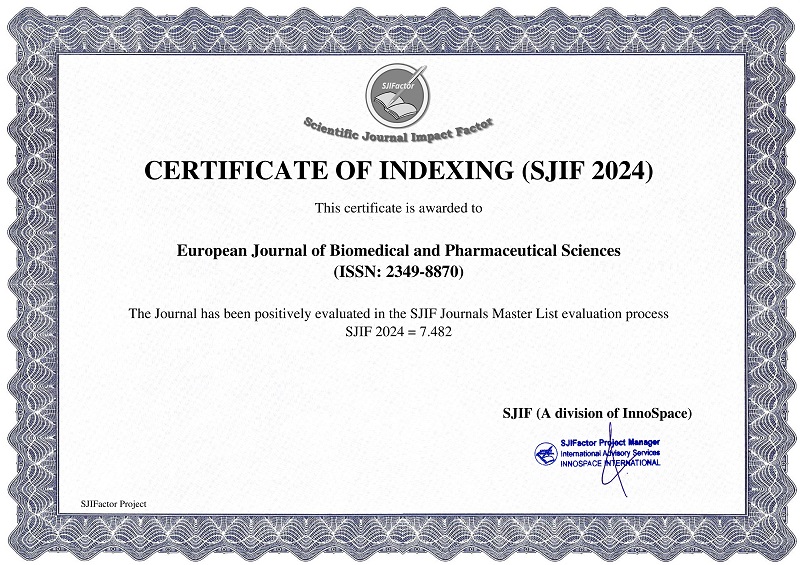ROLE OF C-PEPTIDE LEVELS AND THE RISK OF DIABETES AND PRE-DIABETES AMONG WOMEN WITH GESTATIONAL DIABETES
Ravikumar Gopalakrishnan*, Pradeepa, Sugapradha G. R., Senthamilselvi R.
ABSTRACT
Background: Women with a history of gestational diabetes mellitus GDM have a significantly increased risk for developing type 2 diabetes later in life. Connecting peptide (C-peptide), produced in equal amounts to insulin, is known to be a useful marker of beta-cell function and can be used to assess endogenous insulin secretion. Objective: To assess the role of C-peptide levels and the risk of diabetes and pre-diabetes among women with a history of gestational diabetes. To verify whether C-peptide can be used as a marker to screen people at a higher risk of diabetes mellitus. Methods: A cross sectional study in women with the history of gestational diabetes of 1-5 years after delivery was conducted in Thanjavur Medical College Hospital, Thanjavur from April 2013 to March 2018. All participants’ venous blood samples were collected before fasting at least 12 hours and 2 hours after the ingestion of 75g glucose. Fasting plasma C-peptide was measured on an automatic analyser. In addition, HbA1c was also measured. Results: 20 out of 76 GDM patients (26.31%) showed increased levels of C-peptide levels. 12 out of these 20 patients developed type 2 diabetes after four years. 2 patients were diagnosed of prediabetes after two years. Obesity and increased BMI were also significant in these patients. Conclusions: Fasting plasma glucose during pregnancy and postpartum, and post-partum C-peptide levels are significant risk factors for the development of type 2 diabetes in women with GDM. Elevated C-peptide levels may be a predictor and a screening tool of postpartum diabetes and pre-diabetes among GDM women.
Keywords: Gestational diabetes mellitus, C-peptide, Type 2 diabetes, Pre-diabetes.
[Full Text Article]
[Download Certificate]


 Impact Factor : 8.181
Impact Factor : 8.181 






